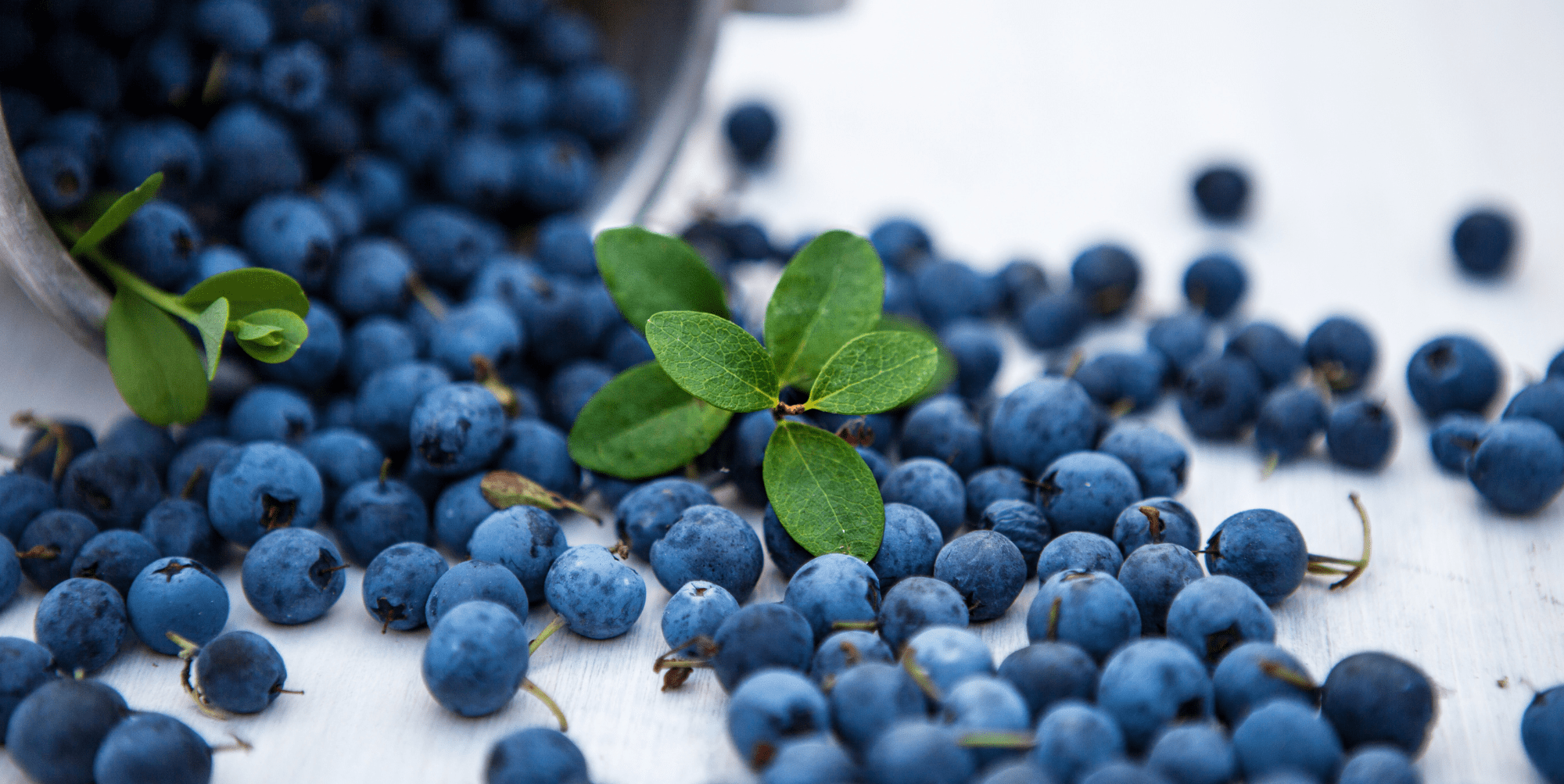Blueberries often carry the title of a superfood thanks to their powerful antioxidants and impressive nutrient profile. Yet one common question keeps popping up: are blueberries acidic? If you’ve ever dealt with acid reflux, heartburn, or digestive sensitivity, this detail matters. Let’s break it down clearly covering pH values, health effects, benefits, and practical tips for enjoying blueberries without discomfort.
What Does It Mean When a Food Is Acidic?
To understand whether blueberries are acidic, you first need to know how acidity in foods is measured. Acidity is expressed using the pH scale, which ranges from 0 to 14:
- 0–6.9: Acidic
- 7: Neutral
- 7.1–14: Alkaline (basic)
The closer a food’s pH is to zero, the more acidic it is. For context, lemon juice has a pH of about 2.0, while pure water sits right in the middle at 7.
Here’s a quick comparison of common foods and their pH levels:
| Food | Average pH Level | Acidity Level |
| Lemon juice | 2.0 – 2.6 | Highly acidic |
| Tomato | 4.0 – 4.5 | Moderately acidic |
| Blueberries | 3.1 – 3.5 | Mildly acidic |
| Banana | 5.0 – 5.3 | Low acidity |
| Melon | 6.0 – 6.7 | Slightly acidic |
This table makes it clear: blueberries fall into the mildly acidic category.
So, Are Blueberries Acidic?
The short answer: Yes, blueberries are acidic. Their pH typically ranges between 3.1 and 3.5, making them more acidic than bananas but less acidic than citrus fruits.
Several factors influence the acidity of blueberries:
- Ripeness: Unripe blueberries are more acidic than ripe ones.
- Soil and climate: Growing conditions can slightly change pH levels.
- Form of the fruit: Fresh blueberries are mildly acidic, while blueberry juice or dried blueberries can concentrate the acidity.
Blueberries pH Value Compared to Other Berries
Let’s see how blueberries stack up against their berry cousins:
| Berry | Average pH Level |
| Cranberries | 2.3 – 2.5 |
| Raspberries | 3.2 – 3.6 |
| Blueberries | 3.1 – 3.5 |
| Strawberries | 3.0 – 3.9 |
| Blackberries | 3.2 – 4.0 |
As you can see, blueberries are less acidic than cranberries but similar to strawberries and raspberries.
Do Blueberries Cause Acid Reflux or Heartburn?
For most people, eating blueberries won’t trigger acid reflux. However, if you already struggle with GERD (Gastroesophageal Reflux Disease) or frequent heartburn, blueberries may cause mild irritation due to their natural acids.
A key factor here is portion size. Eating a handful of fresh blueberries usually won’t hurt, but drinking a large glass of blueberry juice on an empty stomach could cause symptoms.
Blueberries and Digestion: Friend or Foe?
Interestingly, blueberries contain a high amount of dietary fiber. Fiber actually aids digestion, slows stomach emptying, and helps regulate bowel movements. So while blueberries are acidic, they can also improve gut health if eaten in moderation.
Case example: Some people with acid reflux notice flare-ups after eating raw blueberries. Yet, the same people often tolerate blueberries when combined with yogurt or oatmeal. This shows how food pairing makes a difference.
Health Benefits of Blueberries (Despite Their Acidity)
Even though blueberries are acidic, their nutritional value is hard to ignore. They’re often called a superfood because they deliver a wide range of health benefits.
Key benefits include:
- Rich in antioxidants – especially anthocyanins, which protect cells from damage.
- High in vitamin C – supports immunity and skin health.
- Vitamin K and manganese – important for bone strength.
- Gut health support – fiber feeds good gut bacteria.
- Anti-inflammatory effects – reduce oxidative stress.
Do the Benefits Outweigh the Acidity?
Absolutely. The nutritional punch of blueberries far exceeds the drawbacks of their acidity. Unless you have a highly sensitive stomach, you’ll gain far more benefits from eating blueberries than avoiding them.
How to Eat Blueberries If You’re Sensitive to Acidic Foods
If you love blueberries but worry about acidity, you don’t have to give them up. Instead, use smart food combinations to neutralize their acid impact.
Tips to reduce acid effects:
- Pair with alkaline foods like oatmeal, yogurt, or spinach.
- Blend into smoothies with bananas or kale.
- Avoid blueberry juice on an empty stomach.
- Limit portions to small handfuls rather than overindulging.
Best Ways to Enjoy Blueberries Without Acid Reflux
- Oatmeal with blueberries and almond butter
- Greek yogurt topped with blueberries and honey
- Smoothies with banana, spinach, and blueberries
- Baked oatmeal muffins with blueberries
These combinations balance acidity and provide long-lasting energy.
Are Blueberries Acidic in Juice, Jam, or Dried Form?
Blueberry products can have different acidity levels compared to fresh fruit:
| Blueberry Product | Average pH Level | Notes |
| Fresh blueberries | 3.1 – 3.5 | Mildly acidic |
| Blueberry juice | 2.8 – 3.3 | More acidic, concentrated |
| Blueberry jam/jelly | 2.9 – 3.2 | Added sugar, slightly more acidic |
| Dried blueberries | 3.1 – 3.5 | Same acidity but higher sugar content |
Key takeaway: Processed forms of blueberries like juice and jam tend to be more acidic because their natural acids are concentrated.
Alkaline Alternatives to Blueberries
If you find blueberries too acidic, you can swap them with gentler, alkaline fruits:
- Melons (cantaloupe, honeydew)
- Mangoes
- Papayas
- Figs
- Pears
These fruits are less likely to trigger acid reflux and can be excellent substitutes in smoothies or desserts.
Final Verdict – Are Blueberries Acidic?
Yes, blueberries are mildly acidic, with a pH between 3.1 and 3.5. But the bigger picture is more important: their health benefits far outweigh their acidity. Most people can safely enjoy blueberries, especially when paired with alkaline foods or eaten in moderation.
If you’re prone to acid reflux, avoid blueberry juice on an empty stomach, but don’t feel you have to cut fresh blueberries from your diet.
Bottom line: Blueberries may be acidic, but they remain one of the healthiest, most versatile fruits you can add to your daily meals.
FAQ: Are Blueberries Acidic?
Are blueberries acidic or alkaline?
Blueberries are acidic, with a pH around 3.1–3.5.
Do blueberries cause stomach pain?
Not usually, but large amounts or juice may cause discomfort in sensitive individuals.
Is blueberry juice more acidic than fresh berries?
Yes, juice is more concentrated and acidic than whole blueberries.
Can you eat blueberries if you have GERD?
Yes, in moderation and when paired with alkaline foods.
What is the least acidic berry?
Blackberries tend to be slightly less acidic than blueberries, depending on ripeness.

